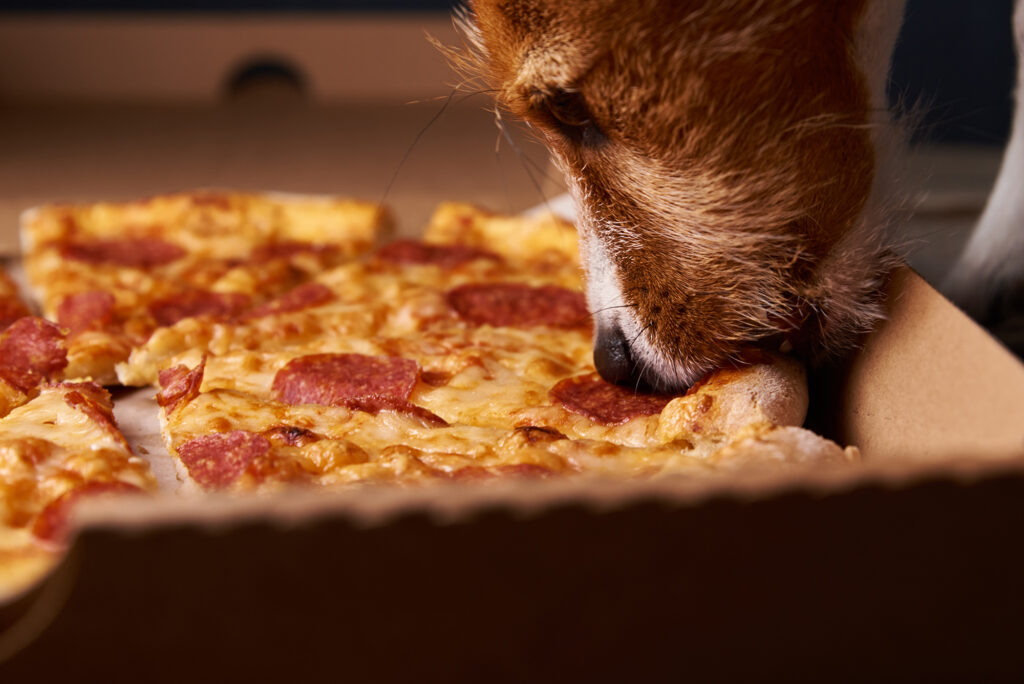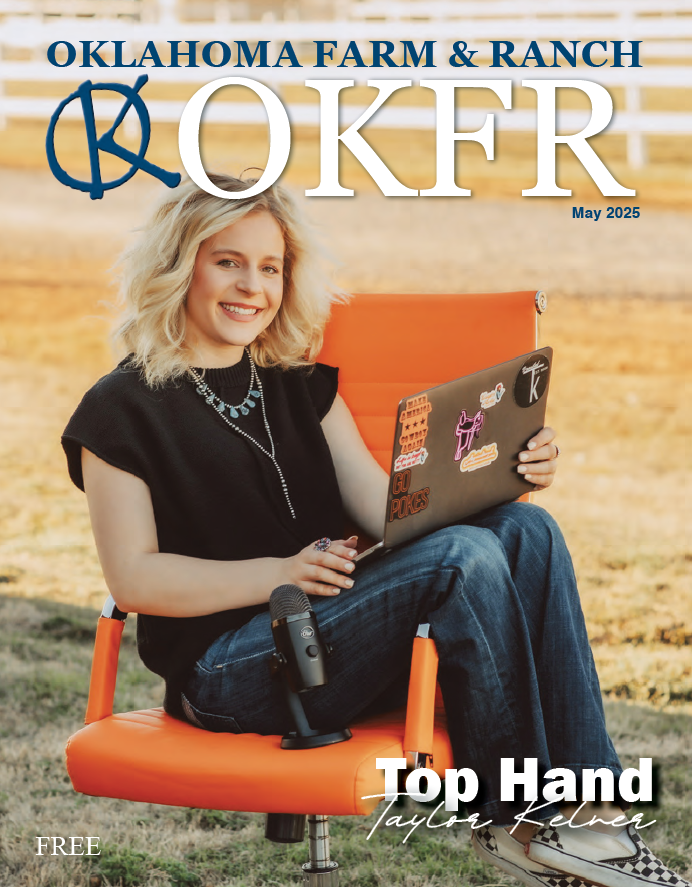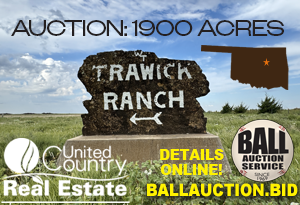Country Lifestyle
State FFA President Cole Eschete
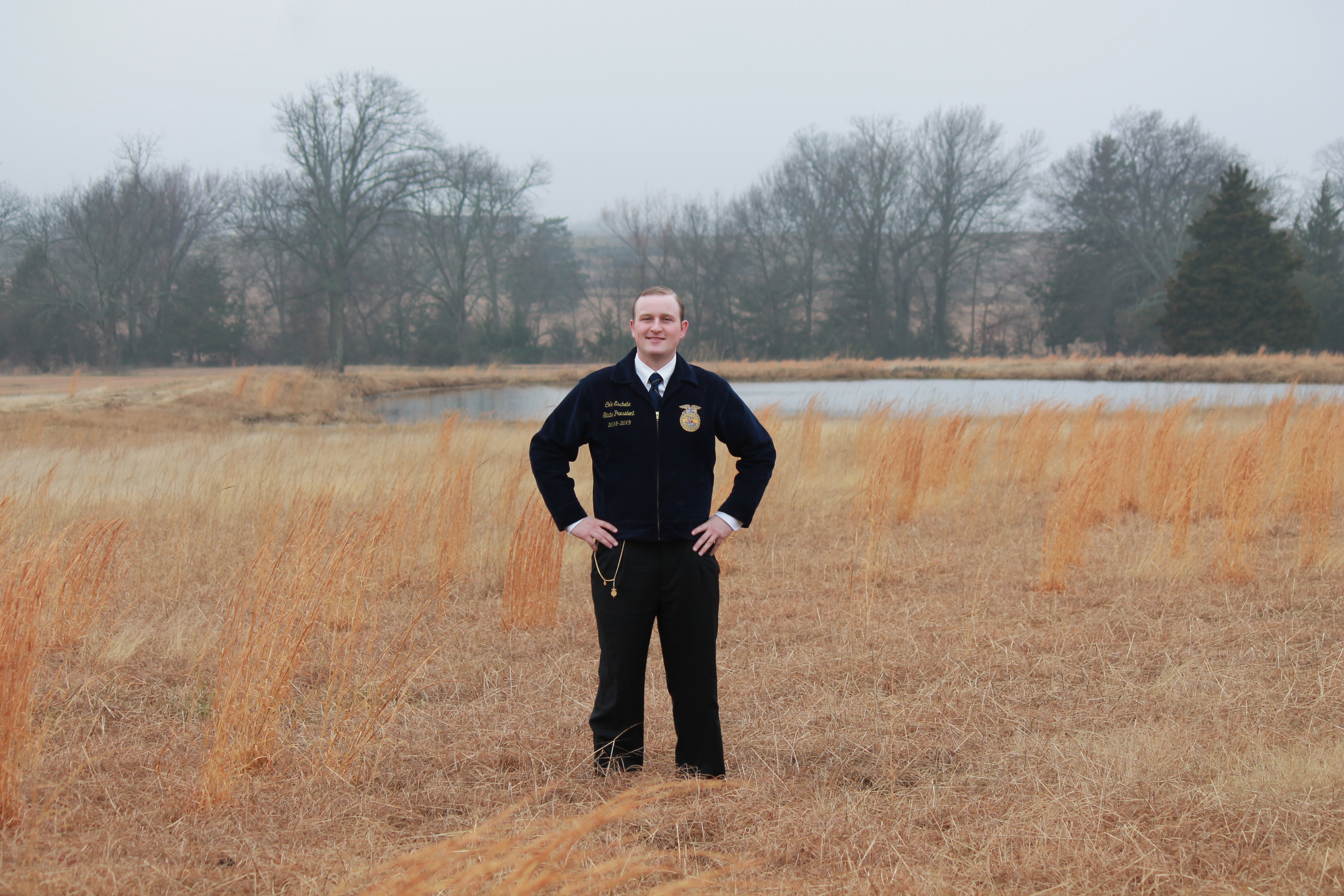
I believe in the future of agriculture, with a faith born not of words but of deeds – achievements won by the present and past generations of agriculturists; in the promise of better days through better ways, even as the better things we now enjoy have come to us from the struggles of former years.
I believe that to live and work on a good farm, or to be engaged in other agricultural pursuits, is pleasant as well as challenging; for I know the joys and discomforts of agricultural life and hold an inborn fondness for those associations which, even in hours of discouragement, I cannot deny.
I believe in leadership from ourselves and respect from others. I believe in my own ability to work efficiently and think clearly, with such knowledge and skill as I can secure, and in the ability of progressive agriculturists to serve our own and the public interest in producing and marketing the product of our toil.
I believe in less dependence on begging and more power in bargaining; in the life abundant and enough honest wealth to help make it so–for others as well as myself; in less need for charity and more of it when needed; in being happy myself and playing square with those whose happiness depends upon me.
I believe that American agriculture can and will hold true to the best traditions of our national life and that I can exert an influence in my home and community which will stand solid for my part in that inspiring task.
The words of the FFA creed, penned by E.M. Tiffany and adopted at the Third National FFA Convention, are held in the mind of every person who has ever worn the association’s blue corduroy jacket. The nostalgic words bring back memories of livestock shows, white ag trucks, pig fries, conventions, contests, and more.
For some, however, those words are forever engraved on their heart.
Growing up as a fifth generation rancher in the small Southeast Oklahoma town of Bokchito, Cole Eschete is one of those people. For Eschete, there was never a doubt he would be involved in FFA; it’s just a way of life for small-town boys in Oklahoma. He just didn’t realize when he first became a member how much it would change his life.
The charismatic young man is now serving out his last couple months as the State President of Oklahoma FFA, having spent seven years involved with the Association.
“Just a small-town kid…”
Born and raised in Bokchito, just 20 miles east of Durant, Eschete’s roots in agriculture run deep. Pure angus beef cattle are raised on his family’s ranch, named the Lost Cajun Ranch in homage to his father’s Louisiana roots. Like many country kids, Eschete spent countless hours working on the ranch driving tractors, building fence, doctoring and anything else the job required.
In his younger years, Eschete was heavily involved in 4-H, so FFA was just the logical progression.
“FFA was just the next step for me to show livestock. Little did I know at the time where it would lead,” Eschete said with a laugh. “My uncle, Josh McDonald, was my ag teacher when I first joined FFA. He and my parents let me know really quick that I wasn’t going to just show livestock and pushed me to get into the leadership side of things and all the many activities that Oklahoma FFA provide, and that’s how I’m here today.”
It’s hard to believe, but when he was younger, Eschete had a difficult time speaking to people, even struggling with a slight stutter. “I couldn’t look anyone in the eye, but I did livestock judging, public speaking, opening ceremonies and more. I did everything, but those are the main ones.” He added, “Now I can talk your ear off!”
Although Eschete fulfilled his promise to do more than show livestock, he still was incredibly successful in the show pen. He spent his free time in the barn with his show pigs and raised and sold them as part of his Supervised Agricultural Experience, a major component of FFA membership. His fellow FFA and 4-H members would buy them, and he himself won numerous accolades and honors in the form of Grand Championships with his homebred hogs. Eventually, Eschete was awarded the Southeast District Star in Production.
The Journey to a State Office
It was in ninth or 10th grade that Eschete met two young men who would change the trajectory of his FFA career. During the State Officer Goodwill Tour, when state officers visit most every FFA chapter in the state, Eschete met Gatlin Squires and Garrett Reed. “Those two guys took time out of their day and showed interest in me. I thought it was the coolest thing in the world, and that’s when I really started thinking about state office,” he said. “That’s when I decided I could do it.”
There are many steps to becoming a state officer, but the real work begins long before the member’s senior year, with networking at livestock shows, judging contests, speech contests and meetings. It involves tirelessly studying the association, learning everything you can about its history and members.
The mechanics of it are simple. It starts with an application and transcript that are sent to the state office. Then the candidates go through the nominating committee process, known as Non Com. There, they have an interview with not only adults, but also current FFA members. Next is a test of FFA knowledge, and finally a speech to explain why they want to become an FFA State Officer.
Oklahoma FFA is divided into five areas: Northwest, Southwest, Central, Northeast, and Southeast. After Nom Com, the top three candidates from each area are put on the ballot, and during the State FFA Convention in May, each area votes for their state officer, who is named as the Area’s Vice President.
“When I found out I was one of the three, it was one of my most life-changing moments,” Eschete said. Still, that moment paled in comparison to the emotions he felt when his name was called as the Southeast Area Vice President. “It’s hard to explain. To be there in that moment – when I heard my name – it was amazing. It’s hard to explain. I had fought with a small-town mentality a lot of my life, and I wanted to show that a guy like me, from a small town like I was, could do just as much as anyone else.”
Read more about Cole Eschete in the March issue of Oklahoma Farm & Ranch.
Country Lifestyle
Riding for the Brand
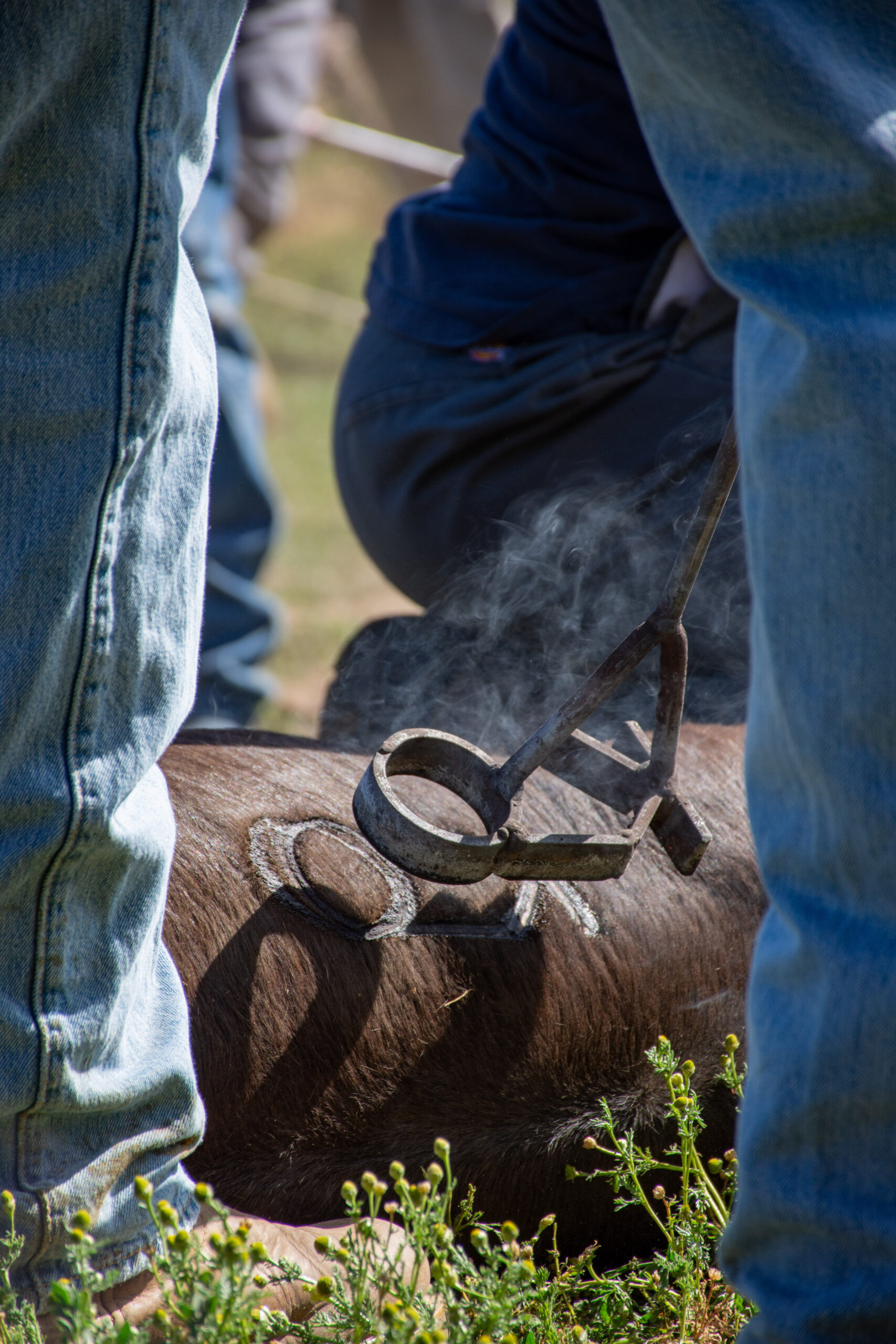
By: Christopher Dysinger
According to the Code of the West a man who has integrity is one who rides for the brand. If you are unfamiliar with cowboy parlance this phrase is used to describe being loyal to the outfit you work for. Cowboys were, “intensely loyal to the outfit they were working for and would fight to the death for it. They would follow their wagon boss through hell and never complain.” -Teddy Blue Abbot. Riding for the brand means being loyal and when I consider what it means to be loyal I am reminded of the words of the Lord Jesus to His disciples in Matthew 16:24, “Then said Jesus unto His disciples, If any man will come after Me, let him deny himself, and take up his cross and follow Me.” To me, to take up the cross and follow the Lord is the epitome of what it means to ride for the brand.
When you place your trust in the Lord Jesus you are signing on to His outfit, to speak the language of the West. When you called upon the name of the Lord Jesus by faith, He saved you and from this point you are riding for His brand. In taking up your cross and following Him you have pledged to be loyal, and this means you face any hardship or trial like a cowboy on the trail moving the herd. Any complaint must be swallowed in the same way you would swallow a cup of coffee. When I hear our faith and loyalty to the Lord Jesus put into these terms it stirs something within me that moves me to keep right on riding for the brand.
Louis L’amour wrote, “Riding for the brand was an expression of loyalty to a man’s employer or the particular outfit he rode for. It was considered a compliment of the highest order in an almost feudal society. If a man didn’t like a ranch or the way they conducted their affairs he was free to quit, and many did; but if he stayed, he gave loyalty and expected it. A man was rarely judged by his past only by his actions. Many a man who came west left things behind him he would rather forget, so it was not the custom to ask questions. Much was forgiven if a man had courage and integrity and if he did his job. If a man gave less than his best, somebody always had to pick up the slack, and he was not admired.” It is the same when a person gives his or her heart to Jesus.
When you come to the Lord Jesus you are not judged by your past. When you come to the Lord Jesus, repenting of sin and seeking forgiveness, everything from your past is left behind. All will be forgiven. 1 John 1:9 reads, “If we confess our sins, He is faithful and just to forgive us our sins, and to cleanse us from all unrighteousness.” When you place your faith in the Lord Jesus you are promising to be loyal and in return you will receive the same. He has promised that He will never leave us or forsake us. When you walk with the Lord Jesus through life you are indeed, “riding for the brand.”
“Riding for the brand” is not just an expression of loyalty nor is it just an expression of pride, it is also an expression of love. When a cowboy claims to be riding for the brand, he is telling any other outfit who may seek his loyalty, that he cannot give it, because he has given his word to another. It is the same when we pledge our faith and loyalty to the Lord Jesus. If any would call us away from Christ we cannot go, because we are riding for the brand.
The End
This article is an excerpt from the book, The Bible and the Code of the West by Dr. Christopher Dysinger.
Country Lifestyle
Farm Dogs & Table Scraps

What’s Safe and What’s Not?
Growing up on a farm, our dogs were tough. They roamed the pastures, slept under the barn, and ate just about anything they could get their paws on—whether we meant for them to or not. I’ll admit, I never thought twice when one of our old cow dogs snatched a biscuit off the table or licked up a spill from the barn floor. I’ve even seen a dog steal a whole rib bone off a plate and trot off like he’d won the lottery. And somehow, they always seemed fine.
But here’s the thing—just because they survived doesn’t mean it was safe. For every farm dog that lucked out, there’s another that wasn’t so fortunate. Some human foods can be downright toxic to dogs, and a little bit of bad luck (or a smaller, more sensitive dog) can turn a harmless snack into an emergency.
Common toxic foods lying around the farmhouse
If you’ve got a farm dog—or any dog, really—you need to be aware of the dangers lurking in everyday foods. Some of the biggest culprits include:
Chocolate – The darker it is, the worse it is. Even a little can cause vomiting, seizures, or worse.
Grapes & Raisins – No one’s exactly sure why, but they can cause kidney failure fast.
Onions & Garlic – In large enough amounts, these can destroy red blood cells, leading to anemia.
Xylitol (Found in Sugar-Free Gum & Candy) – This artificial sweetener can send a dog’s blood sugar crashing and cause liver failure.
Alcohol – Even small amounts can be deadly to dogs, affecting their nervous system much more than it does ours.
Bones from Cooked Meat – While not necessarily toxic, they can splinter and cause serious internal injuries.
Macadamia Nuts – These can lead to weakness, vomiting, and even paralysis in dogs.
What to do if your dog eats something toxic
First, don’t panic—but don’t ignore it either. If you know your dog ate something dangerous, call your vet immediately. They can tell you whether to induce vomiting or if it’s something that requires urgent care. If it’s after hours, contact the ASPCA Animal Poison Control Center (888-426-4435) or the Pet Poison Helpline (855-764-7661).
Prevention is always the best medicine, so keep toxic foods out of reach. That might mean keeping the trash can secured, making sure kids don’t slip the dog a treat under the table, or just being more mindful of what’s left on the counter.
Our farm dogs might have been lucky, but luck isn’t a great strategy when it comes to their health. A little awareness goes a long way in making sure they stay happy, healthy, and ready for the next day’s work.
For more information
ASPCA Animal Poison Control: www.aspca.org/pet-care/animal-poison-control
Pet Poison Helpline: www.petpoisonhelpline.com
Visit www.akc.org/expert-advice/nutrition/foods-your-dog-should-never-eat
Country Lifestyle
Summer Squash and Corn Chowder

By Lacey Vilhauer
Total time: 40 minutes
Servings: 6-7
Ingredients
- 6 slices bacon, cooked and crumbled and 1 1/2 Tbsp rendered bacon fat reserved
- 1 1/2 lbs yellow squash, chopped (about 3 medium)
- 2/3 cup thinly sliced celery
- 1 cup diced onion
- 1 Tbsp flour
- 2 cloves garlic, minced
- 2 3/4 cup milk (I used 1%)
- 5 cups canned or fresh cut corn (from about 6 ears corn), divided
- 1/2 cup heavy cream
- 1 1/2 tsp chopped fresh thyme (or 1/2 tsp dried)
- 3/4 tsp salt, then more to taste
- 1/4 tsp freshly ground black pepper, then more to taste if desired
- 3/4 cup shredded cheddar cheese, for serving
- Chopped green onion for garnish (optional)
Instructions
Heat 4 tsp reserved bacon fat in a large pot over medium-high heat. Add celery and onion and sauté 2 minutes then add the squash.
Saute until tender, about 6 minutes, adding in garlic and flour during last 2 minutes of sauteing. Reduce heat slightly.
Add 1 1/2 cups milk, 2 cups of the corn, thyme, salt and pepper to the sauteed veggies.
To a blender add remaining 3 cups of corn, remaining 1 1/4 cups milk and the cream. Process in blender until nearly smooth (about 30 seconds).
Add pureed mixture to pot and stir to blend. Cook until mixture reaches a light boil.
Serve warm with shredded cheese, crumbled bacon and sliced green onions if desired.
-
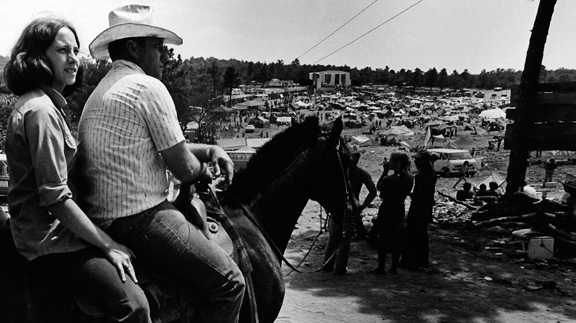
 Attractions8 years ago
Attractions8 years ago48 Hours in Atoka Remembered
-
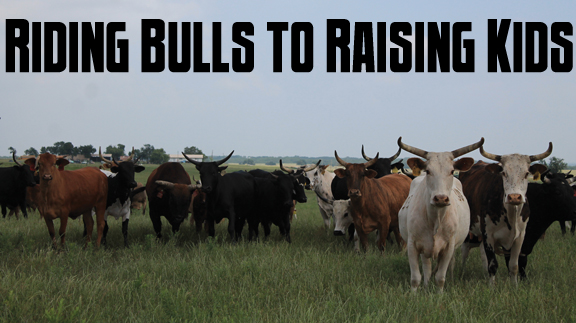
 Country Lifestyle9 months ago
Country Lifestyle9 months agoJuly 2017 Profile: J.W. Hart
-
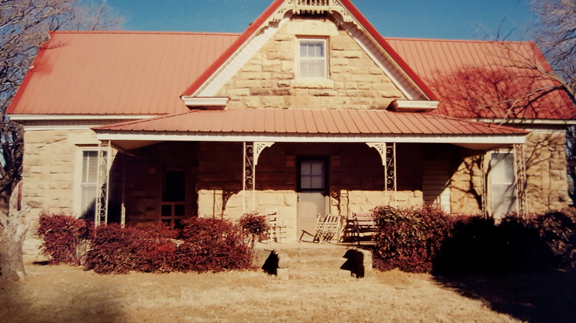
 Country Lifestyle9 years ago
Country Lifestyle9 years agoThe House a Treasure Built
-
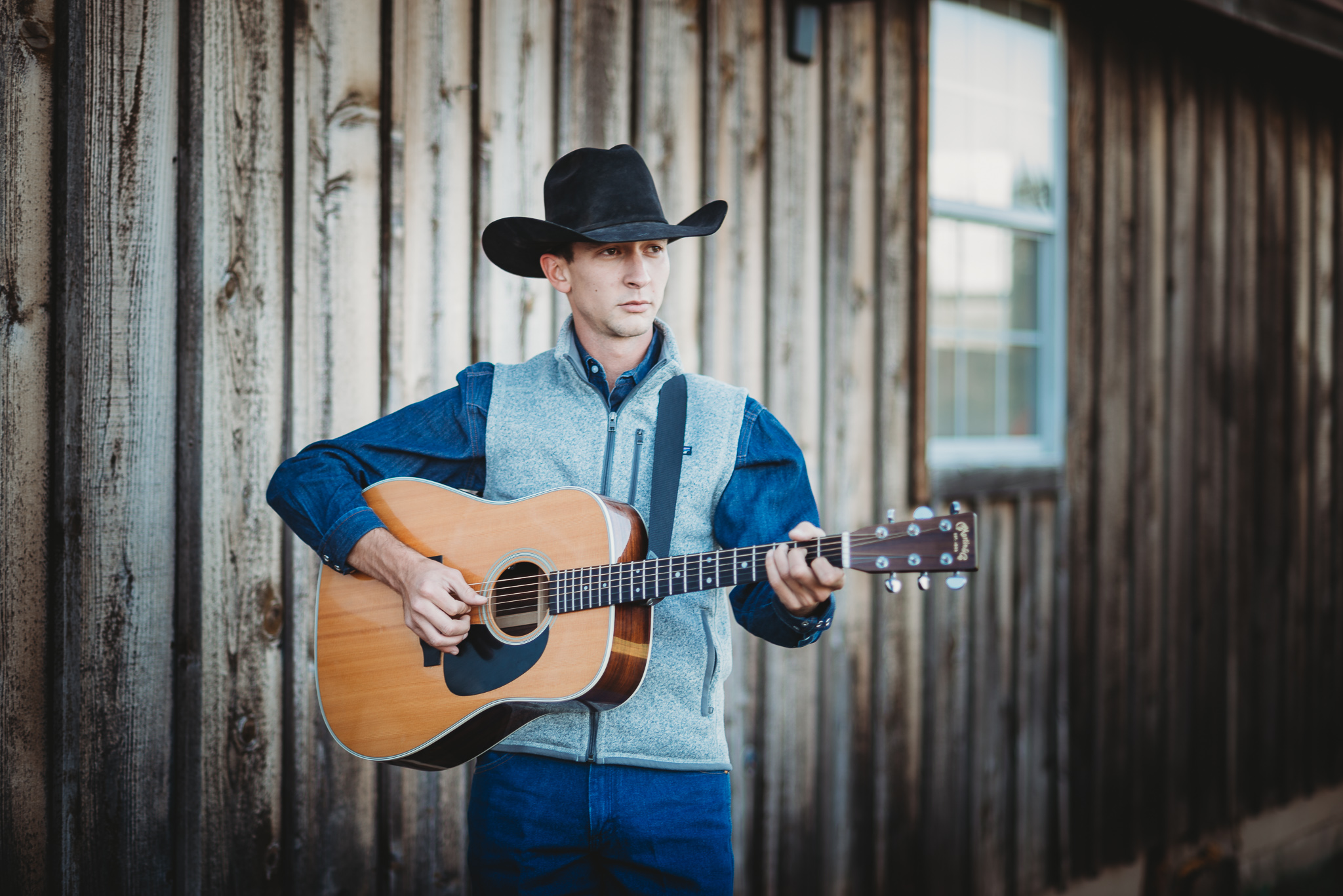
 Country Lifestyle4 years ago
Country Lifestyle4 years agoThe Two Sides of Colten Jesse
-
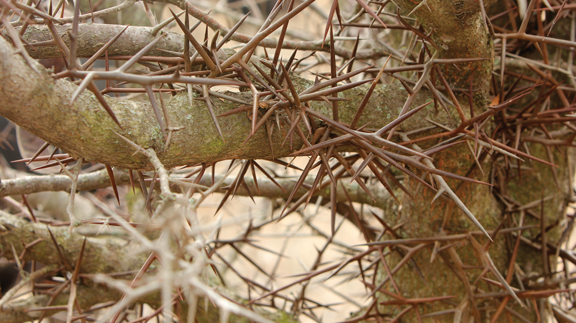
 Outdoors7 years ago
Outdoors7 years agoGrazing Oklahoma: Honey Locust
-
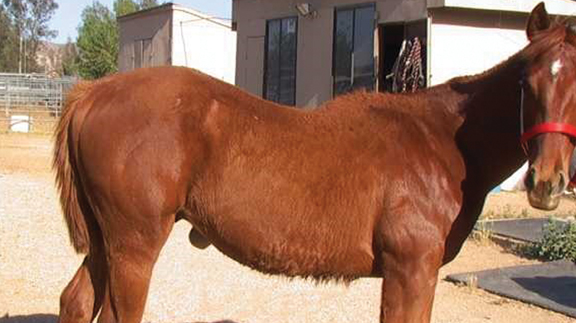
 Equine8 years ago
Equine8 years agoUmbilical Hernia
-
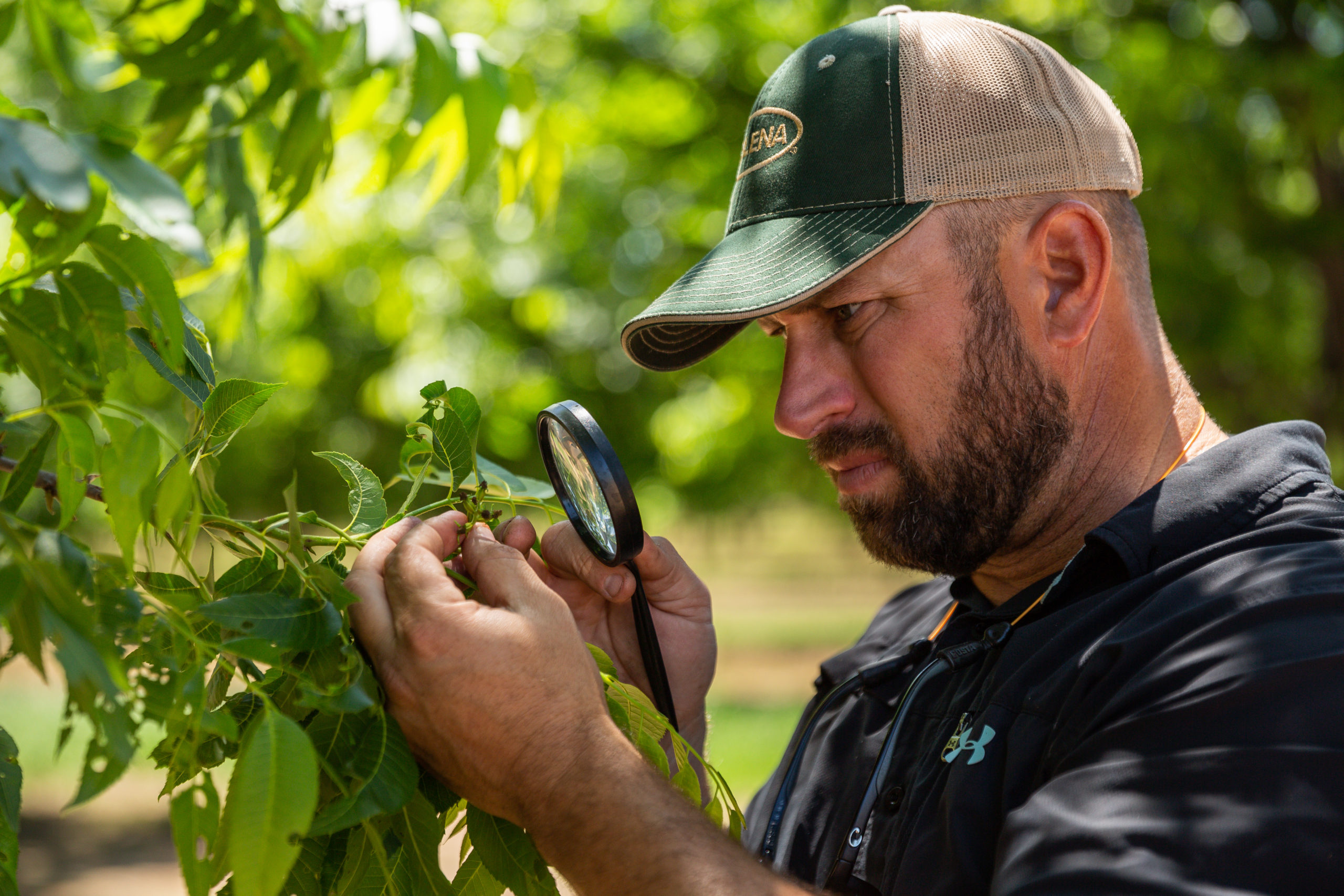
 Outdoors5 years ago
Outdoors5 years agoPecan Production Information: Online Resources for Growers
-
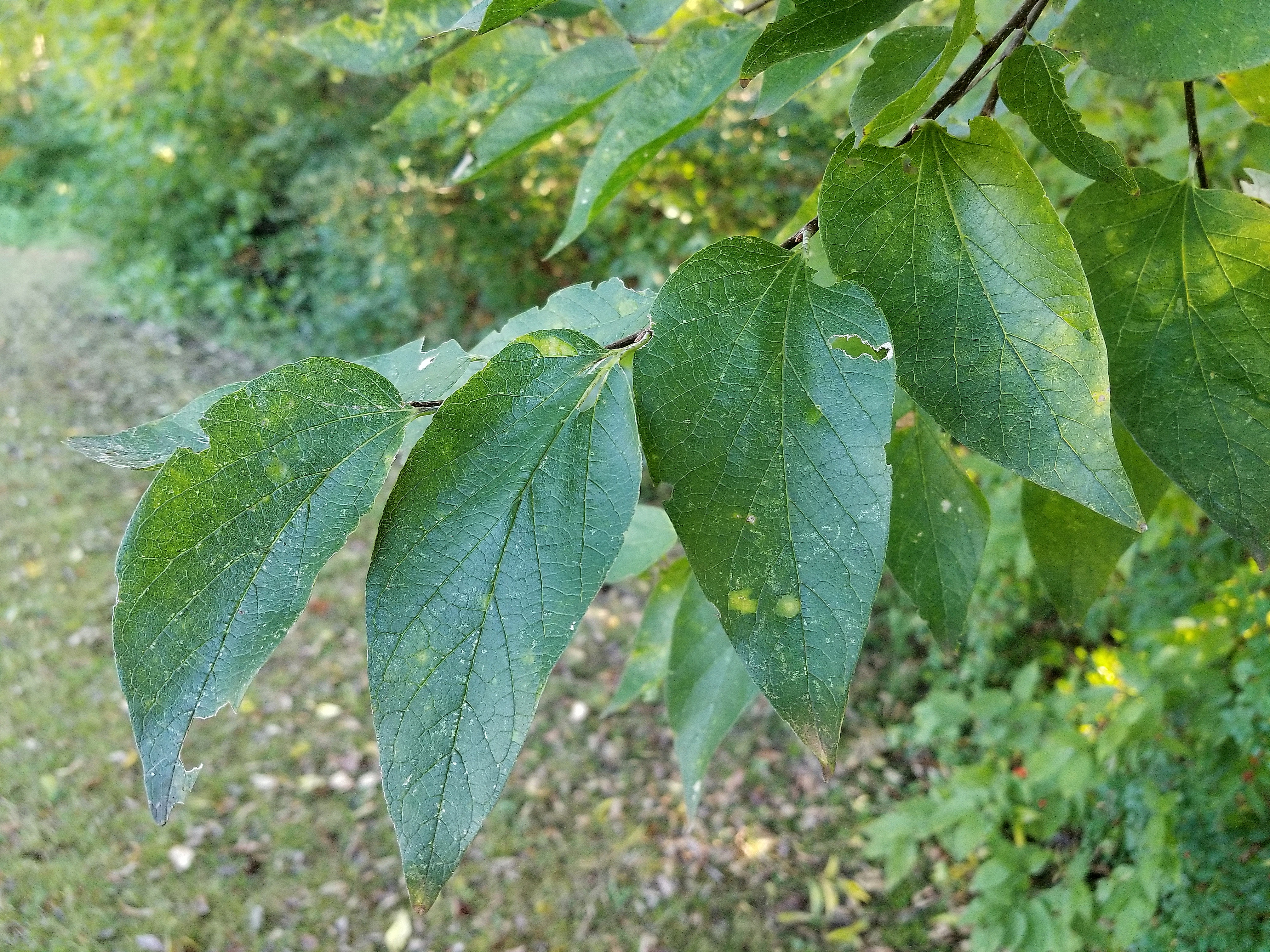
 Farm & Ranch7 years ago
Farm & Ranch7 years agoHackberry (Celtis spp.)
